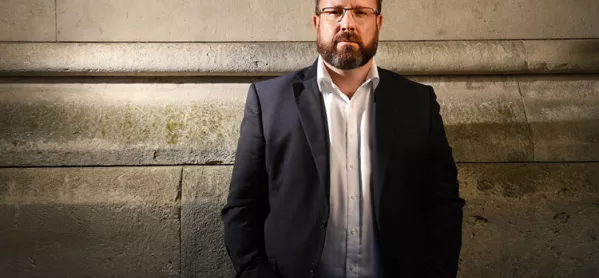There are many ways to become a teacher. Teach First has a specific contribution to make within this system. This contribution can be controversial (I’ve noticed) so I want to flesh out two beliefs that shape our approach.
The first is that there are people who would be good teachers who haven’t yet considered the profession. Options are important to people at the start of their journey: how can people know where their talents truly lie or where their life will take them? Modern careers are becoming a patchwork of roles. This can be a positive for schools. There are many people now teaching who have spent time in other professions, either before they started or in the middle, and find that their variety of experience has much to offer their school and students.
Our job is to persuade people to give teaching a go, and then to make the experience so good that they want to stay. Teach First is designed for this specific task, with a highly structured two-year commitment and enough options at the end that you don’t fear falling behind your peers. But, once in, many people stay a lot longer than they ever expected. In fact, more than 60 per cent of people we’ve ever trained are currently in teaching - from a pool that most would not have joined in the first place otherwise.
The second belief is that we cannot leave it all to teachers to solve every problem in society. Nor is it healthy to isolate the profession. The forces affecting educational disadvantage are many: from poverty, to social and mental health care, to housing, employment prospects, and beyond. We need society, businesses and public services mobilised around schools serving the most disadvantaged communities. And we need society to understand and respect the job that teachers are doing.
This is where the Teach Firsters who leave the profession continue to play such a valuable role. Often they work in the vital support services that schools need to succeed. Some work in local and central government. Many start charities and social enterprises. Those working in business continue to volunteer their time and connect their employers to communities that stand at the back of the queue, providing careers guidance to pupils for example. Every one of these people has served alongside colleagues on the front line in schools in the most disadvantaged communities. This builds an insight, humility and passion for justice that we could do with more of outside education.
Ten years ago, I heard plenty of muttering among non-teachers about how easy teaching was and how schools were letting employers down. I rarely hear that now; they know how hard teachers and support staff work and they know of many brilliant things going on in schools. Teach First alumni have played a role in changing that story.
So, some of the more controversial aspects of Teach First have well-considered foundations and positive impacts. What we must avoid - and what we usually do avoid - is giving the impression that teaching is merely a means to an end or that we want people to leave as quickly as possible. Teaching is an end in itself, for many a lifetime commitment, and we want people to be able to stay a long time in a place where they are doing huge amounts of good. We can’t, however, advance those aims by demanding unrealistic commitments up front or rejecting those who go on to do other things.
When it comes to “making it so good they don’t want to leave” there are several forces at work. How we prepare people for the profession is vital. We have been actively building our training offer and increasing the support we give over the two years, so teachers feel prepared and can excel.
School leadership also has a big role to play, and we rely with gratitude on mentors and heads and managers in our partner schools to coach and nurture our participants. And, of course, national policy affects Teach Firsters the same as every other teacher - especially the way that accountability measures, or weak use of evidence can drive excessive workload. On this, those Teach Firsters in policy roles can help convey the needs of schools serving low income and disadvantaged communities.
Teach First can be a bridge between people who have always known they want a career in our greatest profession and those who don’t yet know they will love it. And it can be a bridge between those who work in education and those who work in all the other parts of our society that schools rely on. That’s a valuable and respectful role to play.
Russell Hobby is the CEO of Teach First





